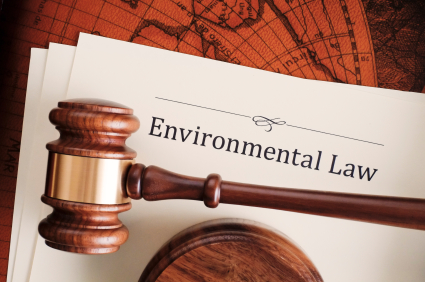Environmental laws focus on interpretivism

Environmental law guides and regulates human activity, promoting green development. Related studies require the application of interpretive theories.
German jurist Karl Larenz once said that law is focused on the significance of regulations. In fact, legal interpretivism is a foundation of law. However, in China where the civil law system is used, in order to meet social needs and remain relevant, a significant amount of research on environmental laws has used “environmental legislation” rather than legal interpretivism, and in the process legal research patterns have changed.
Environmental law guides and regulates human activity, promoting green development. Faced with emerging environmental problems, current research on related laws lack theoretical frameworks and discourse systems. Therefore, environmental law studies require the application of interpretive theories as opposed to legislation.
The research pattern of “questions and answers” has been common throughout history. However, environmental problems in modern society involve complicated networks of interests concerning multiple parties. Solving these problems requires mature legal theories and systems, as well as legal principles drawn from practices that are suitable to China’s domestic conditions. Otherwise, the research would be one-sided, and the law would lack systematic and all-round solutions.
Take provisions concerning environment in the constitution, for example, scholars have concentrated too much on whether the environmental right of citizens should be enshrined in the constitution, while ignoring the basic state policies and civil obligations that have already outlined these rights. Only by thoroughly analyzing these documents can the connotations and scope of environmental protection in the constitution be clarified, and thus these articles could be counted as the source, standards and guidance to set up the environmental law system.
Interpretive methods should be applied to make up for loopholes in legislation, coordinate legal conflicts, and build standardized systems, providing decent interpretation and legal protection for environmental problems in China.
In 2014, the 29th article of the Environmental Protection Act set a warning line for the ecological system. It defined bottom lines for ecological capacity, environmental quality and resources usage, promoting the balanced development of population, environment and resources, as well as coordination between economic and ecological benefits. When using semantic or historical interpretations to explain the “ecological warning line” in the legal article, it referred only to the bottom line of ecological functions, not including the bottom lines for environmental quality and resource usage. At first sight, the vagueness might be taken as a legal flaw, but when using systematic interpretations to explain the article, the standard system of environment and pollutant cap control indexes in the Environmental Protection Act share the same standards as the warning line for environmental quality. Likewise, provisions concerning resource utilization and protection in legislation, such as the Energy Conservation Law, Water Law and Regulatory Law of the Land, cover the requirements in terms of the warning line of resource utilization.
Promoting research in interpretive theories facilitates the efficient implementation of environmental law. The following perspectives should be referenced:
First, the current environmental law should be analyzed in a comprehensive, intensive and systematic way. Comprehensive interpretation refers to investigating all the legal articles, not just heated or specific conditions. Intensive interpretation means examining those articles from multiple perspectives and levels, attempting to solve problems by using interpretive theories rather than using these problems to prove the existence of gaps in legislation. Systematic interpretation requires that the interpretation process cannot be limited to specific articles. Analyses of problems should be part of a framework of a broader law system.
Second, cooperation between studies of environmental law, the constitution, administrative and civil law should be promoted. In practice, environmental problems are not only relevant to environmental laws. These problems are a shared issue of environmental law and other branches of the law, bearing distinct inter-disciplinary features. However, it also should be noted that the legislation of related laws cannot be ignored despite the emphasis on interpretive theories.

 PRINT
PRINT CLOSE
CLOSE